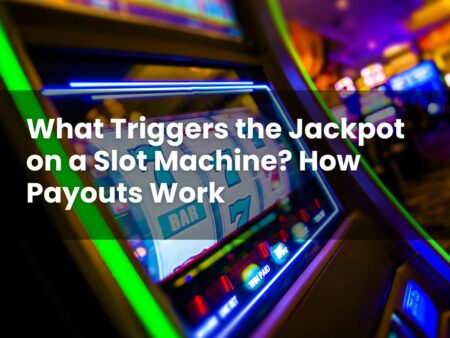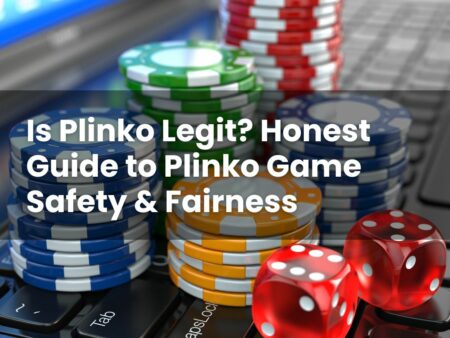Blackjack is one of the most played casino games in the UK, and if you’re just getting started you’ve probably seen the option for “insurance” and wondered what it actually does. With different tables and formats online, it can be tricky to keep track of every rule.
It might help to know the basics. This guide breaks it all down in plain English, so you know what you’re being offered and why. By the end, you’ll understand when insurance appears, what it pays, and whether it’s something you may want to use.
What Is Insurance in Blackjack?
Insurance is a separate side bet that appears only when the dealer’s visible card, known as the upcard, is an ace. Your main hand pauses for a moment while you decide if you want to place this extra wager.
The insurance stake is usually half your original bet. You’re betting that the dealer’s hidden card, called the hole card, is worth ten points. If it is, the dealer has blackjack and the insurance bet pays 2:1. If it isn’t, the insurance bet loses and the hand carries on as normal.
You’ll only see the offer when the dealer shows an ace. Exact table rules can vary slightly by game, so it might be worth checking the on-table rules or help section if anything looks unfamiliar.
If you do decide to try your hand at blackjack, remember to do so responsibly and within your means; never wager more than you can afford to lose.
How Does the Insurance Bet Work?
When the dealer shows an ace, the table offers insurance for a brief window. It sits alongside your main wager and does not change how you play your hand.
The amount is usually half your original stake. So if you’ve bet £10 on the hand, you can place £5 on insurance. If the dealer’s hidden card is a 10, jack, queen or king, the dealer has blackjack and your £5 insurance pays £10 in winnings, plus your £5 stake back.
If the dealer doesn’t have blackjack, the insurance bet is lost and play resumes with your original hand. Your main hand is then settled in the usual way according to the table rules.
When Can You Take Insurance?
The offer appears at one specific point: right after the initial deal, when the dealer’s upcard is an ace. It happens before any more cards are drawn and before the dealer checks for blackjack, where that check is part of the game format.
In a land-based casino, the dealer will announce the option and take any insurance bets. Online and live tables typically show a clear on‑screen prompt or a separate betting area. Once this short window closes, the chance to take insurance for that hand is gone.
Because layouts and timings differ between tables, the way the option is presented can look slightly different. The principle is the same everywhere: it’s offered once, and only when the dealer shows an ace.
What Are the Odds of Winning an Insurance Bet?
Insurance is a bet on the dealer’s hole card being worth ten points. In a standard 52‑card deck there are 16 such cards. With an ace already showing, there are 51 cards left to draw from, so the chance sits at roughly 16 in 51, which is about 31%.
Multi‑deck games keep that proportion broadly similar. The key point is that insurance pays 2:1, while the true odds of the dealer having a ten-value card are a little longer than that payout implies. That small gap is where the house edge comes from. The house edge is the statistical advantage that the casino holds over the player.
Should You Say Yes or No to Insurance in Blackjack?
For most players, insurance isn’t a great deal over time. Although a winning insurance bet pays double your insurance stake, it wins less often than the payout suggests. Over many hands, that tends to favour the house.
Some players still like the idea of getting something back when the dealer does have blackjack. Others prefer to save the extra stake for playing their main hand. Both approaches are common. Whichever way you lean, remember that outcomes are random and cannot be predicted, so it makes sense to base the choice on the facts rather than how a single hand feels.
If you’re unsure, a quick look at the table rules may confirm how insurance is offered on that particular game.
Common Misunderstandings About Blackjack Insurance
Insurance does not protect your main bet. It is a separate wager. If the dealer doesn’t have blackjack, the insurance stake is lost and the hand continues as normal.
Even money often causes confusion too. If you have blackjack and the dealer shows an ace, you might be offered even money, which pays you 1:1 straight away. In practice, this is the same as taking insurance on your blackjack hand, just handled more simply at the table.
Another misconception is that insurance improves your overall chances. It doesn’t. It only applies to one specific scenario, and the expected return is negative for most players. Online and land‑based tables may present the offer differently, but the underlying idea is the same. If in doubt, the game’s rules panel may prove helpful.
Pros and Cons of Taking Insurance
There is a clear upside: if the dealer does have blackjack, the insurance bet pays 2:1, which can soften the impact of losing your main hand on that deal. Some players like having that targeted payout available in a very specific spot.
The downsides matter though. The dealer turns up a ten‑value hole card less often than the 2:1 payout compensates for, so the bet has a built‑in cost over time. Placing frequent insurance bets can quietly add up and reduce your playing funds faster than you expect.
Table variations can change how the option is displayed or the exact timing, but the core trade‑off stays the same. A quick scan of the table rules could tell you exactly what to expect before you decide.
Is Insurance Ever a Good Idea for Players?
In typical play, insurance is usually not recommended because the payout does not match the true probability of the event you’re betting on. That said, there are niche situations where very advanced players might see value. For example, in some live games where techniques such as card counting are possible, the mix of remaining cards can occasionally tilt the numbers. Most online games use automatic shuffles or formats that prevent this from being practical.
For everyday play, the simplest approach is to view insurance as a specific side bet that generally favours the house. If you prefer to keep things straightforward, skipping it could be a sensible default. If you still want to use it from time to time, do so with a clear understanding of what it pays, when it applies, and how it affects your bankroll.






